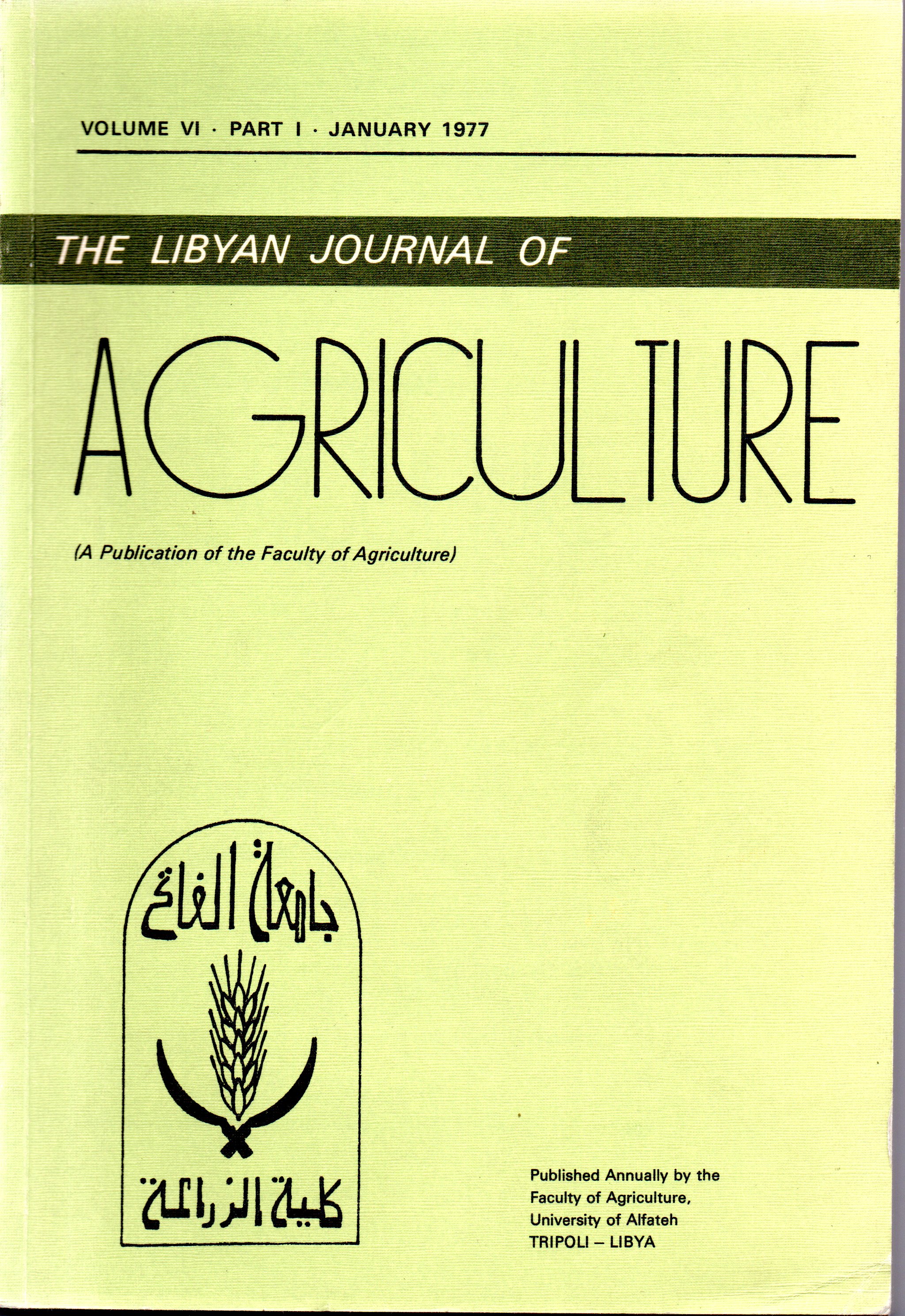Response of Tomato and Two Other Vegetable Crops to Inoculation with Azotobacter
Main Article Content
Abstract
he abundance of Azotobacter in the rhizospheres of inoculated and non-inoculated tomato, chard, and beet plants was determined to test the effect qf inoculation, plant species, and age of plant on the Azotobacter population established in the rhizosphere. Greenhouse and field experiments were also conducted to test the effect of Azotobacter inoculation on growth, flowering and yield of tomato plants.
Inoculation increased the abundance of Azotobacter in rhizospheres of all tested plants and the highest established population was in tomato rhizosphere which showed highly significant improvement in growth by the treatment.
Under greenhouse conditions treating of tomato with Azotobacter, by seed inoculation before sowing by root inoculation of the seedlings beforetransplantingor by both, resulted in highly significant improvement in growth and earliness of flowering of the • plants. Inoculation of the seeds was more effective than inoculation at the seedling stage.
Under the field conditions, inoculation of tomato resulted in better growth of the plants, early fruit production, and highly significant increases in total yield of fruits.

